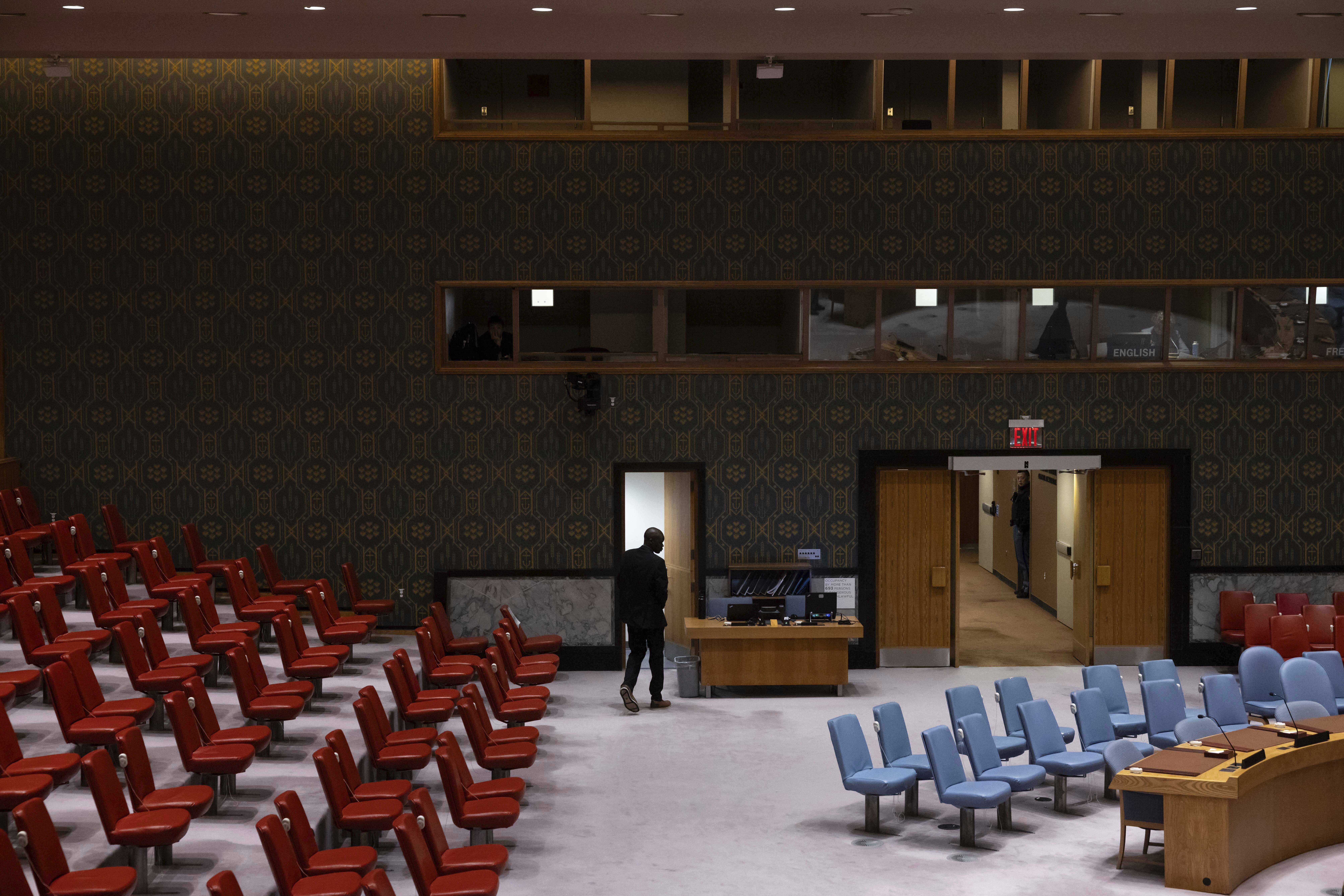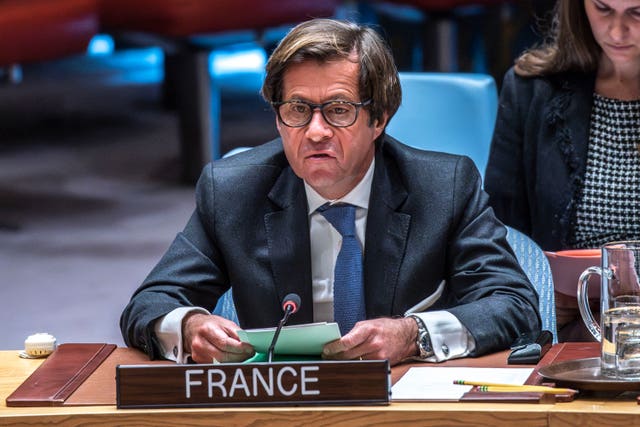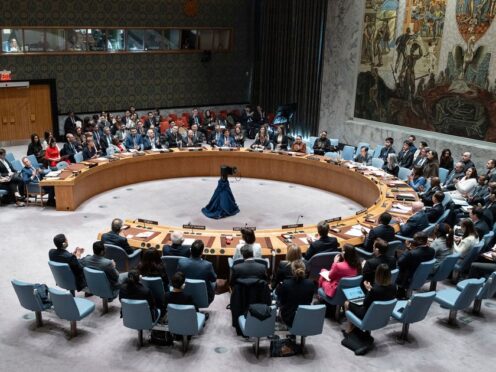Russia vetoed a UN resolution on Thursday effectively abolishing the monitoring of sanctions against North Korea by UN experts.
Russia’s vote sparked Western accusations that Moscow was acting to shield its weapons purchases from North Korea for use in its war against Ukraine, in violation of sanctions.
The vote in the 15-member council was 13 in favour, Russia against, and China abstaining.

The Security Council resolution sponsored by the United States would have extended the mandate of the panel for a year, but Russia’s veto will halt its operations.
The resolution does not alter the sanctions, which remain in force.
Russia’s UN ambassador, Vassily Nebenzia, told the council before the vote that Western nations are trying to “strangle” North Korea and sanctions have proven “irrelevant” and “detached from reality” in reining in its nuclear programme.
US deputy ambassador Robert Wood told the council that Russia’s veto was nothing more than “the attempt by one council member to silence the independent objective investigations” into North Korea’s sanctions violations.
He said Russia acted because “the panel began reporting in the last year on Russia’s blatant violations of the UN Security Council resolutions”.
He warned that Russia’s veto will embolden North Korea to continue jeopardising global security through development “of long-range ballistic missiles and sanctions evasion efforts”.
White House national security spokesman John Kirby condemned Russia’s veto as a “reckless action” that undermines sanctions imposed on North Korea while warning against the deepening co-operation between North Korea and Russia, particularly as North Korea continues to supply Russia with weapons as it wages its war in Ukraine.
“The international community should resolutely uphold the global non-proliferation regime and support the people of Ukraine as they defend their freedom and independence against Russia’s brutal aggression,” Mr Kirby told reporters.
Britain’s UN ambassador Barbara Woodward said Russia’s veto follows arms deals between Russia and North Korea in violation of UN sanctions, including “the transfer of ballistic missiles, which Russia has then used in its illegal invasion of Ukraine since the early part of this year”.
“This veto does not demonstrate concern for the North Korean people or the efficacy of sanctions,” she said.
“It is about Russia gaining the freedom to evade and breach sanctions in pursuit of weapons to be used against Ukraine.
“This panel, through its word to expose sanctions non-compliance, was an inconvenience for Russia,” Ms Woodward said.

France’s UN ambassador Nicolas de Riviere added that “North Korea has been providing Russia with military material in support of its aggression against Ukraine, in violation of many resolutions which Russia voted in favour of”.
The Security Council imposed sanctions after North Korea’s first nuclear test explosion in 2006 and tightened them over the years in a total of 10 resolutions seeking — so far unsuccessfully — to cut funds and curb its nuclear and ballistic missile programmes.
The last sanctions resolution was adopted by the council in December 2017.
China and Russia vetoed a US-sponsored resolution in May 2022 that would have imposed new sanctions over a spate of intercontinental ballistic missile launches.
The Security Council established a committee to monitor sanctions and the mandate for its panel of experts to investigate violations had been renewed for 14 years.
